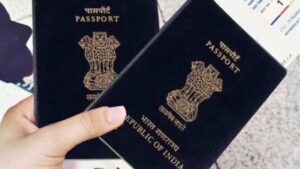Pune: District Administration to Introduce Slot-Booking System to Tackle Overcrowding at Tourist Spots

Pune, July 24, 2025 – In a bid to address safety risks and environmental concerns caused by surging monsoon tourism, the Pune district administration has announced a mandatory slot-booking system for 25 popular tourist destinations. District Collector Jitendra Dudi revealed that the initiative aims to regulate overcrowding, minimize ecological damage, and prevent accidents, particularly during weekends and holidays.
Digital Booking System to Manage Tourist Flow
The new system will require visitors to reserve time slots in advance via a mobile application currently under development by the Forest Department, the nodal agency overseeing the project. A budget of ₹50 crore, sanctioned by the district planning committee, has been allocated for the digital rollout and necessary infrastructure upgrades.
High-Footfall Locations Under Scrutiny
Officials have identified 23 to 25 high-traffic locations, including scenic spots in Mulshi, Maval, Bhor, Rajgad, Khed, Junnar, and Ambegaon talukas. These areas, known for waterfalls, forest trails, and trekking routes, have witnessed exponential visitor growth in recent years, often exceeding their carrying capacity.
On June 29, over 6,000 tourists flooded the Andharban forest trail in a single day, forcing authorities to halt entry by noon due to safety concerns. Similar congestion has been reported at Sinhagad Fort, Rajgad, and Tamhini Ghat, leading to blocked pathways, traffic snarls, and increased landslide risks. Environmentalists have also raised alarms over biodiversity loss and rising human-wildlife conflicts.
Triggering Incident: Kund Mala Bridge Collapse
The decision follows a tragic incident on June 15, when the Kund Mala bridge in Khed collapsed under the weight of an overcrowded tourist gathering, killing four and injuring several others. A subsequent inquiry led to the dismantling of 63 unsafe bridges and called for stricter crowd management measures.
How the Slot-Booking System Will Work
- Tourists must book time slots via the upcoming mobile app.
- Entry points will be monitored by Forest Department staff and local volunteers.
- Slot capacities will be determined based on ecological sensitivity and safety norms.
- Real-time monitoring will allow authorities to pause access if footfall exceeds safe limits.
Infrastructure and Local Benefits
Alongside digital controls, the administration will install ticket counters, turnstiles, signage, and visitor information centers at key sites. The system is expected to benefit local vendors and transport operators by ensuring a steady, manageable tourist flow instead of sudden closures.
Strict Enforcement and Future Plans
Operations will be jointly managed by the Forest Department and Gram Panchayats. Highly vulnerable areas like Andharban and Kundalika Valley will remain closed until the system is fully operational. Authorities have warned that violators attempting to access restricted sites will face legal consequences.
With this initiative, Pune becomes one of the first districts in Maharashtra to adopt a tech-driven approach to tourism management, balancing public safety, environmental conservation, and local economic stability.









